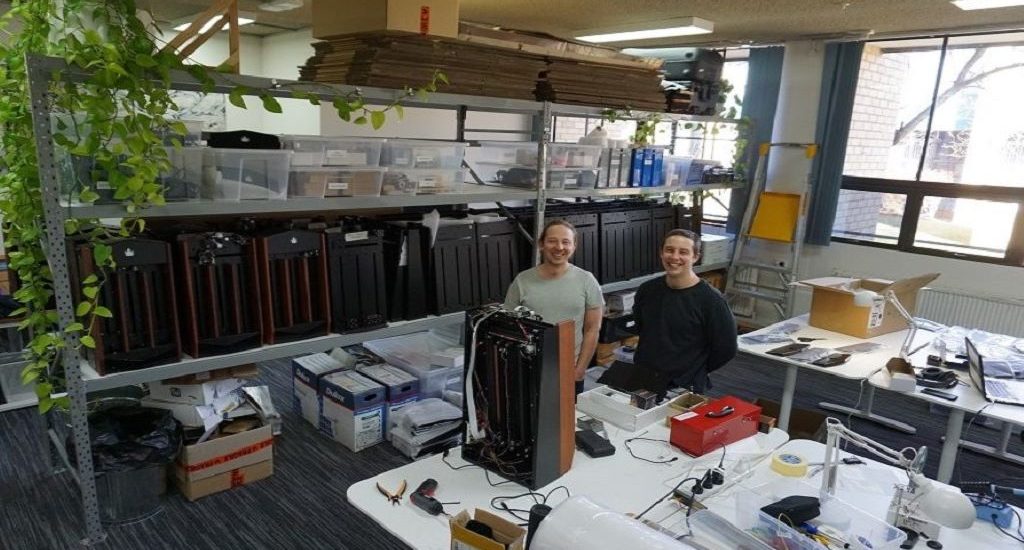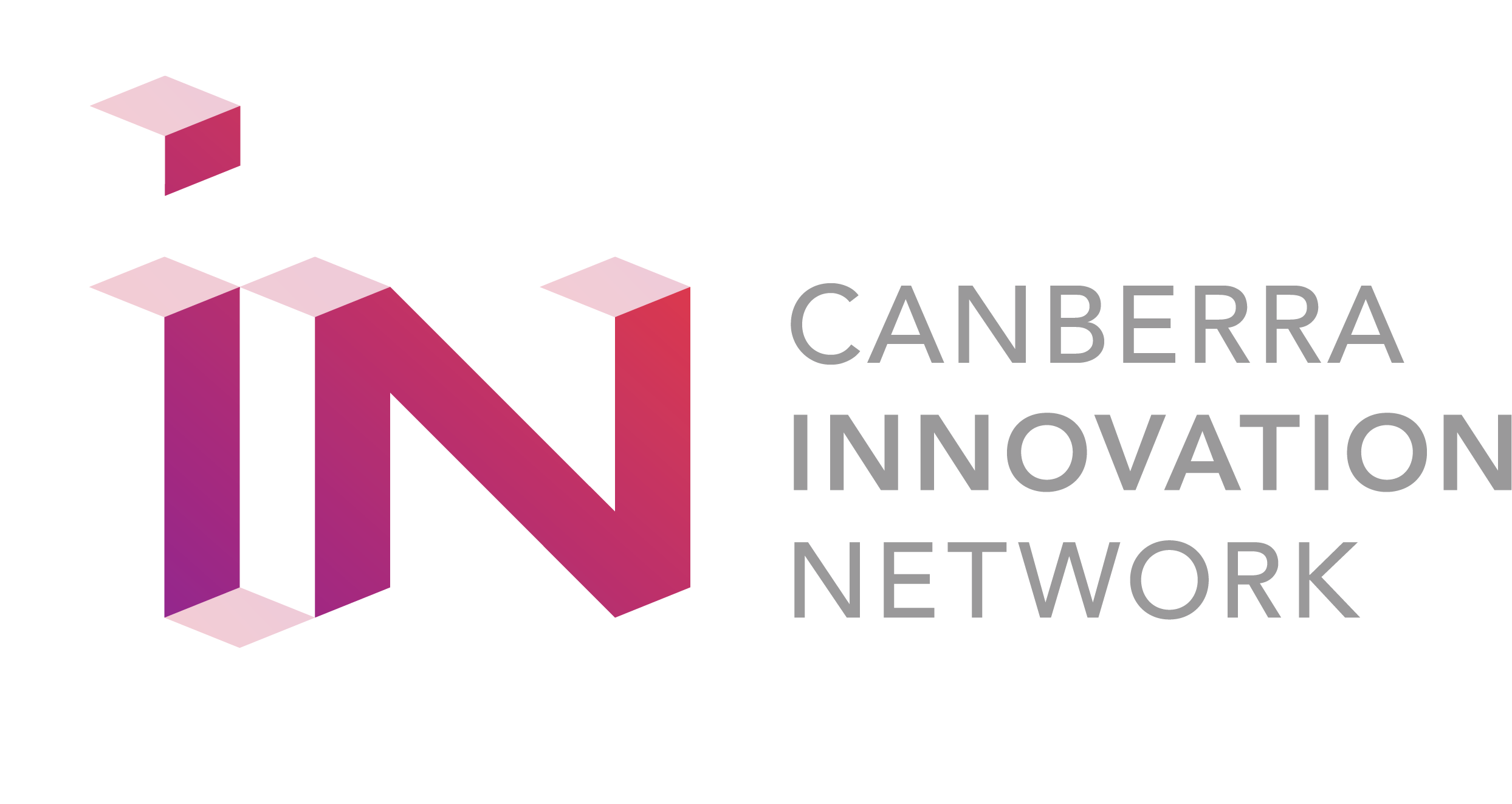- 29 July 2021
- Posted by: Canberra Innovation Network
- Categories: Coworking, General News, GRIFFIN Accelerator, SME

When thinking about a successful Canberra startup’s origin story, there are few as Hollywood as CardCastle‘s … two brothers have an idea for innovation that would be of interest to those who share their passion, they foster that idea and involve others, receive mentorship and some money, hire staff and take over a corner of a coworking space, go international and establish their own offices. Brilliant! That’s what the Canberra Innovation Network is all about. So if you’re looking to hear about the good guys winning in the end, you’ll love this conversation we recently had with CardCastle’s co-founder and CEO, Seb.
Tell us about your company and how it came to be.
CardCastle is connecting the global collectibles market with inventory management software and dedicated marketplaces. My brother and I founded the company in 2014. The idea came from my own experience of the problem (I own about 20,000 Magic cards and was struggling to keep a track of them), as well as seeing how it affected my local store (without an inventory, buying cards from them was a pain).
How were you able to use the Canberra Innovation Network to get from idea-stage to international businesspeople?
I don’t think we’d be here without the GRIFFIN Accelerator program. We were a part of the 2015 cohort and the things we learnt really set us on the right track. The connections we made with advisors and investors in the Canberra innovation space has been invaluable.
More recently, we completed a Growth Lab which connected us with an extremely helpful advisor. It was great to get outside perspective on some of the challenges we face and rethink our growth strategy.
What did you see as the need in the market?
We identified a problem set in one niche of the collectibles market – trading card games – but quickly realised it applied to all collectibles. Collectors and retailers build up enormous collections of items but have no efficient way of tracking what they own, where it is and how much it’s worth. A digital inventory would solve this problem, but creating one is a challenge when the items they own are so unique and varied (collectibles rarely have any kind of barcoding). It’s not possible to participate in online marketplaces without a digital inventory, so collectors and retailers are limited in their opportunities to buy, sell, and trade.
What do you bring specifically to the industry?
We bring a holistic solution to the entire problem set – other solutions have typically put the cart before the horse, creating marketplaces with inventory management as an after thought. We realised that inventory management was the core of the problem, and that marketplace features are added value.
Were there any big barriers that kept you from achieving your current success, at the start?
The biggest barrier for us was securing funding. Being first time founders and working in a niche industry, paths to potential investors weren’t immediately obvious. The GRIFFIN Accelerator helped hugely with this, not only putting us in touch with appropriate investors but pushing us to focus on achievements that would secure other investors.
Tell us about Canberra as a city for entrepreneurs.
Canberra is a great city for startups – there’s a huge amount of support available from groups like CBRIN, angel investor networks, and government grants. An entrepreneurial community is great for Canberra as well – I think encouraging innovation in more than just business improves our city.
Starting a business during COVID has been either incredibly challenging, truly rewarding or more likely a combination of both for most startups – how has COVID affected your business plans?
It’s definitely been a combination of both for us! The uncertainty of running a business is always a challenge, and the pandemic added a huge amount to that. On the other hand, the JobKeeper stimulus worked perfectly for us – it allowed us to continue operating despite our customers shutting down and our revenue dropping. It feels good to still be here on the other side.
Tell us about the ‘success moment’ – when you realized your idea had legs and could potentially make money for you, and others.
I’ve always been confident that our idea was valuable and would be successful, given the chance. I think you need to believe that from the start if you’re going to push through the initial barriers of starting a company. If only that’s all you needed to see success, though! Even with that belief, and evidence that you’re right, there’s still a million other things that can derail a startup.
Are all entrepreneurs born to be bosses? Was that a weird transition for you?
I think all entrepreneurs HAVE to be bosses at some point, so perhaps only people who feel up to being a boss decide to be entrepreneurs. I don’t think anyone is born with management skills, though; I think it’s something you have to learn, and different teams / companies require different kinds of bosses. I wouldn’t have described myself as a leader before starting CardCastle, but I would now. That doesn’t feel too weird to say because it’s happened organically – I’ve become more of a leader as more leadership has been required from me.
Do you have any advice for other startups hoping to find their feet?
The most important thing is to ask for help. A startup founder is responsible for so many things – usually far too many for them to properly handle everything.
Tell us about the stage in the game you’re at, and where you hope to go as you grow.
We recently launched a new hardware product – the CardBot. It’s our automated trading card scanning and sorting machine, designed to help retailers with their commercial collections. The CardBot is the final piece in the puzzle for our solution, not only opening up a B2B revenue stream but driving player subscription growth. Since delivering the first run of CardBots, we’ve seen 10% month-on-month player subscriber revenue growth.
We’re currently raising to accelerate this growth. We’re raising $1.5M which will allow us to make sales hires to increase hardware sales and grow the development team to round out our offering for Magic, and prepare us to expand into other games. The 12-month goal is to have CardBots in 500 stores and 100,000 player subscribers. From two brothers at the start we now have five additional employees, and are looking to hire three more, so come at me backend developers and salespeople!
Wow. From little things big things grow. Congratulations on your success, Seb – we’re proud of you!

